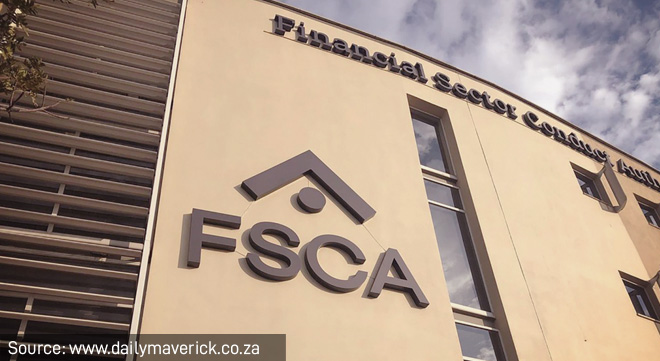On 29 August, the FSCA published the “Draft Determination relating to Foreign Collective Schemes Soliciting Investments in the Republic” and invited written submissions, which were due by 11 October.
The FSCA believes that the progression from a predominantly rules-based approach of regulation for local and foreign collective investment schemes (CIS) to a principles-based approach has necessitated the review of Board Notice 257 of 2013. Board Notice 257 provides the conditions in terms of which foreign CIS may solicit investments in the Republic.
Furthermore, the FSCA was motivated to review Board Notice 257 following the Financial Services Tribunal’s decision in the Greenman Investments S.C.A., Sicav-Fis vs Financial Sector Conduct Authority matter. The ruling stated that the FSCA has the discretion to categorise foreign CIS to apply legislation that is not pre-stated as applying to foreign CIS, but such discretion is limited to applying the provisions of the Collective Investment Schemes Control Act (CISCA).
Contained in the draft determination, among other things, is the prescribed format of an application for approval in terms of section 65(1) of CISCA. Applications must contain various documents, including a prospectus, and details regarding representative agreements that the applicant has concluded.
To be approved, a foreign CIS must comply with certain prescribed conditions in the draft determination. These conditions include that a foreign CIS must immediately notify the FSCA if it suspends the repurchase of participatory interests unless the suspension is a scheduled suspension where investors are notified in the ordinary course of business.
Applicants must also note the condition that any amendments they make to their prospectus will require the operator to cease the solicitation of investments for that portfolio. Resumption of the solicitation of investments for that portfolio will be permitted only once the FSCA confirms, and maybe with further conditions attached.
When determining whether the solicitation of investments in the foreign scheme may be contrary to the interests of investors or potential investors, the FSCA will consider how and to what extent a foreign CIS used investments in unlisted securities, commodities exchange-traded funds and index-based derivatives, property securities and real estate investments trusts appropriately, as permitted in the relevant foreign jurisdiction.
Additionally, the proposed determination’s general conditions for approval under section 65(1) of CISCA require that the FSCA consider the manner and extent to which financial derivative instruments are used for purposes other than hedging or effective portfolio management.
Since the draft determination also addresses these, foreign CISs should expect that the FSCA will consider the appropriateness of the counter-party exposure to over-the-counter derivatives, counter-party exposure to transferable securities, and overall counterparty exposure, in addition to the purpose and marker gearing for use of derivatives.
The FSCA intends to bring the regulation of foreign CIS in South Africa in line with international best practice given that the previous framework was informed by a notice that was published in 2013.
The full draft determination may be accessed here.
This article was written by Dawid de Villiers, Kent Davis and Gabi Richards-Smith, who are partners at Webber Wentzel, and Laone Setshedi, a candidate attorney at the same law firm.
Disclaimer: The views expressed in this article are those of the writers and are not necessarily shared by Moonstone Information Refinery or its sister companies. The information in this article does not constitute legal advice that is appropriate for every individual’s needs and circumstances.



